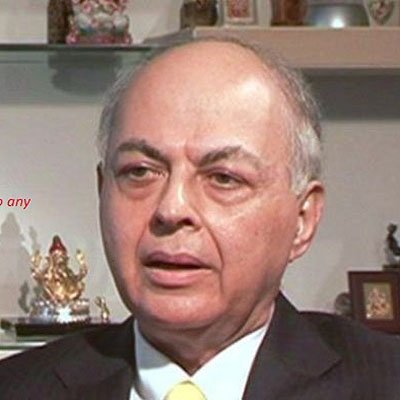

Ranjit Shahani
RANJIT SHAHANI is the Managing Director and Vice Chairman of Novartis India Ltd. and has been its Executive Director since November 1, 2002. Ranjit is a graduate of Indian Institute of Technology (IIT), Kanpur and MBA from Jamnalal Bajaj Institute of Management Studies. He is actually a technocrat, but built his career in the chemicals and pharmaceuticals industry. After a career with ICI India Ltd, he had spent a few years with ICI/Zeneca in United Kingdom, overseeing their Asia Pacific and Latin American operations in their Petrochemicals and Plastic Division. This was followed by a period as CEO at Roche Products Ltd., India. He then moved to Novartis India Limited in 1997. As Past President of Organisation of Pharmaceutical Producers of India (OPPI), he has been in the forefront in creating awareness of the challenges facing the Pharmaceuticals industry and how patents serve as innovation growth drivers.
Our Exclusive Interview:
What is your definition of a good leader?
The demands on leadership are intense and the spotlight seldom leaves you, so it’s very important to be yourself. Especially in the corporate world there are always expectations that cause people to behave in ways which I won’t say are undesirable but are definitely not like themselves. So first and foremost it’s very important to be yourself.
A good leader is also one who works well with the team – nurturing their history, working jointly with them on their strengths, weaknesses and career aspirations. Empathising with as well as making associates accountable. Being decisive in the best interests of the organization.
Finally being optimist and full of positive energy while being focused on the strategic goals of the stakeholders.
How do you think organizations should evaluate/measure “quality of leadership”?
Without a clear vision, a leader cannot be effective. Clean communication and the ability to inspire and build trust in the team and dealing with ambiguity are critical qualities of leadership.
How can one improve one’s leadership skills?
Key is to listen and communicate effectively. Always keep a positive attitude serving as a role model, encouraging creativity and ensuring people make their positive contributions.
What are the three most important challenges in front of leaders in today’s times?
The three most important challenges facing leaders today are:
Meeting the aspirations of the youth – as India’s demographics goes through a change we increasingly see younger and younger management aspirants and keeping them motivated and grooming them for higher roles is a challenge
Delivering growth year on year – as economies goes through cyclical phases there is greater pressure on leaders in countries like India to deliver growth year on year
Retaining key talent – attrition rates are higher than ever before and retaining key talent is a challenge
What in your views are most effective ways/techniques for grooming future leaders?
Nurturing future leaders is key to any organisation’s success. Talent is a key competitive advantage. Personal engagement and commitment from Senior Leadership for skillful coaching, mentoring and feedback practices must be woven in the DNA of the organization.
When should a leader call it quits?
Key factors that play into the decision to continue to work or call it quits are:
The impact you are having
The business your are bringing in
The quality of relationships you are able to build and maintain Overall it’s when you can look back on the experience with a smile, is the time to quit
Which leader in the Corporate world do you admire and why?
Nelson Mandela
He had
Charisma
Was a transformational leader and
Was strong yet tolerant with very high integrity
Cannot find a clone in the Corporate world !
